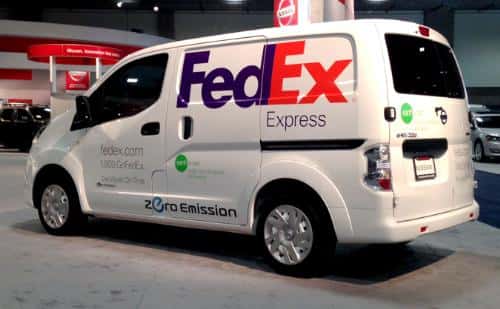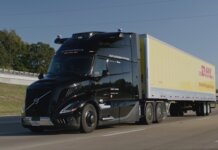FedEx has released its 2016 Global Citizenship Report, “Deliver It Forward,” announcing that the company has surpassed its goal to increase FedEx Express vehicle fuel economy by 30% five years ahead of schedule.
The Global Citizenship Report highlights the company’s commitment to connecting the world responsibly and resourcefully, including its efforts to reduce greenhouse-gas emissions and place more alternative fuel vehicles on the road. In the 2015 fiscal year, FedEx nearly doubled the number of alternative fuel vehicles in its global fleet, including 1,892 hybrid, electric, compressed natural gas, propane auto gas and hydrogen vehicles. FedEx has also been testing cargo tractors powered by hydrogen fuel cells.
In addition to more alternative fuel vehicles, FedEx has also added more efficiency conventional vehicles to its fleet. This includes nearly 2,800 Isuzu Reach vans, which are up to 50% more efficient than the models they replace, as well as 400 Mercedes-Benz Sprint vans that are at least 70% more efficient.
FedEx also acted on its commitment to obtain 30% of jet fuel from alternative sources by 2030, signing an agreement with Red Rock Biofuels to purchase alternative jet fuel made from wood waste starting in 2017. The parcel delivery service also saved almost 120 million gallons of jet fuel through operational efficiencies and fleet upgrades, avoiding almost 1.15 million metric tons of carbon-dioxide-equivalent (CO2e) emissions. Since 2007, FedEx says that Fuel Sense has saved more than $1 billion worth of jet fuel.
The company also increased rail usage at FedEx Freight by 10.4%, saving more than 20 million gallons of diesel and avoiding more than 207,000 metric tons of CO2e emissions. FedEx also brought five new on-site solar energy systems online, bringing the total to 15 and increasing on-site energy generation capacity by 5.5 MW.
You can read the complete report here.






